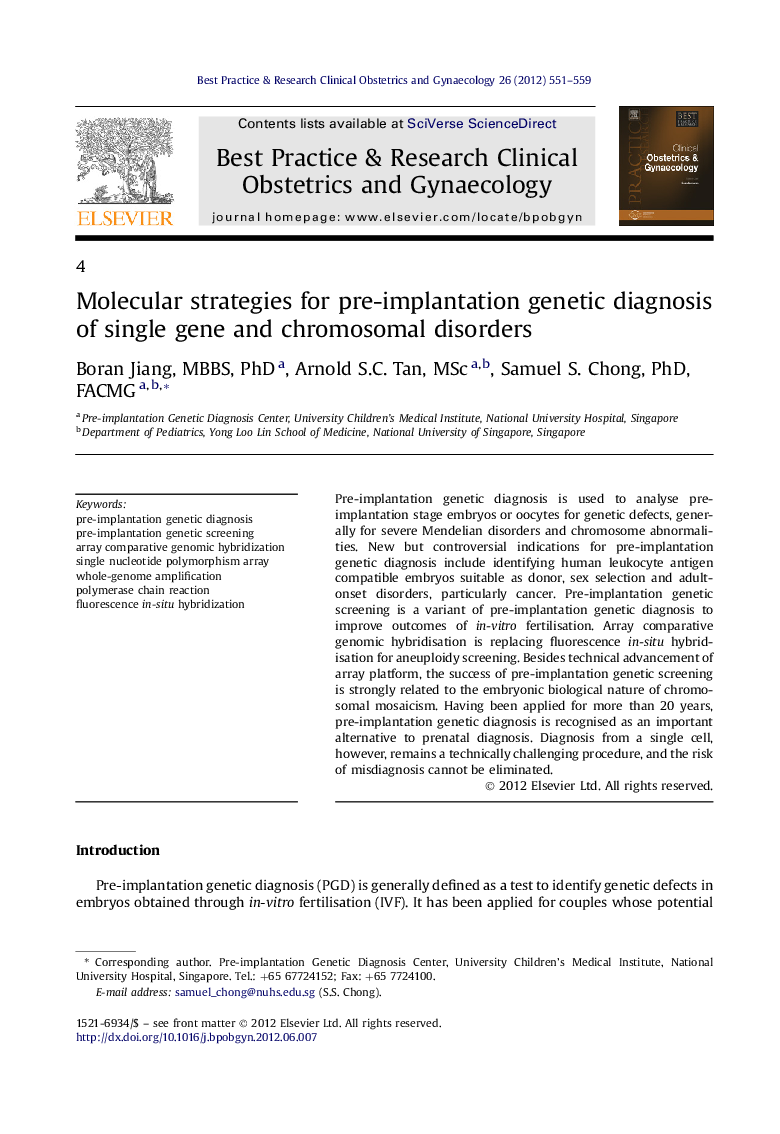| Article ID | Journal | Published Year | Pages | File Type |
|---|---|---|---|---|
| 3907259 | Best Practice & Research Clinical Obstetrics & Gynaecology | 2012 | 9 Pages |
Pre-implantation genetic diagnosis is used to analyse pre-implantation stage embryos or oocytes for genetic defects, generally for severe Mendelian disorders and chromosome abnormalities. New but controversial indications for pre-implantation genetic diagnosis include identifying human leukocyte antigen compatible embryos suitable as donor, sex selection and adult-onset disorders, particularly cancer. Pre-implantation genetic screening is a variant of pre-implantation genetic diagnosis to improve outcomes of in-vitro fertilisation. Array comparative genomic hybridisation is replacing fluorescence in-situ hybridisation for aneuploidy screening. Besides technical advancement of array platform, the success of pre-implantation genetic screening is strongly related to the embryonic biological nature of chromosomal mosaicism. Having been applied for more than 20 years, pre-implantation genetic diagnosis is recognised as an important alternative to prenatal diagnosis. Diagnosis from a single cell, however, remains a technically challenging procedure, and the risk of misdiagnosis cannot be eliminated.
